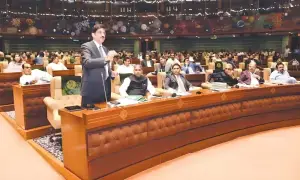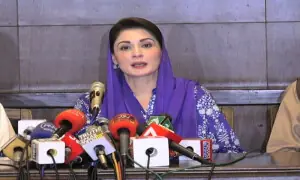Mind Your Language
4 min readWhenever I think of my school days back in the late 80s and early 90s, I recall a numb child trying to understand a foreign language, in this case English, which was neither spoken at home nor in surroundings.
Then, I would be struggling to make sense of English words, sentences, chapters, essays and every material in the language to comprehend ideas, but, in the end, I would end up frustrated at my attempts to understand the language.
At that time the pressure of getting first position in the class was so strong that I abandoned the effort of making sense of the English language. So, I started memorizing subject content taught in a second language, including the subject of English.
Nearly two least two decades, when I began teaching at a low-cost middle-class English-medium school in my neighbourhood, I realized nothing had changed. My students were struggling with the same issues I faced as a student. They were also unable to express themselves or their ideas in English.
To top it off, I faced pressure from the school’s management to keep the medium of instructions in English so that students could be proficient in it.
I wonder how could the students understand a lecture in English when they were unable to comprehend written content in the same language.
In her book, 'Reforming school education in Pakistan and the language dilemma', Zubeida Mustafa wrote: “Trying to teach English by the wrong method by teachers who are not fluent in the language is the worst kind of tyranny we inflict on our children.”
Mustafa then talked about the disadvantages of using a foreign language as a medium of instruction at beginner’s levels in schools. A child’s growth is affected and his or her capacity to think slowed down by imposing an alien language on the child whose cognition has not fully developed.
She believes a lot of time is being spent on changing the curriculum of basic education. A latest example of this is Single National Curriculum, which has been implemented in schools in some provinces. She says the entire focus of the developers is on the content rather than the language of instructions or the language in which books were being published.
Without working on the language issue, it will not be possible to make significant impact on the education system and “we will continue to produce children who can’t think creatively and critically and communicate coherently”, she writes.
A child acquires language informally from birth till the age of at least two-and-a-half years, which is the time a child is admitted to school in. The new environment for children in educational institutions should be able to strengthen skills, his or her thought process and ability to fluently communicate in the language. This is only possible if the language of instruction in schools is either their mother tongue or a language of the environment. In an effort to impose a foreign language on children, the education system creates a blockade of free flow of ideas in the child’s mind, dragging him or her away from his environment and introducing an entirely new world of language to him which is alien.
In Mustafa’s words, this process conveys a message to the child that their identity and individuality are no longer important.
Presenting a solution to the problem, Mustafa, who has done a great amount of work on education, talked about a hypothetical situation in the system wherein a “language shift” could create miracles. She advocates for a regional language or language of the environment be made as a medium of instructions in schools. She believes this will also ease the burden on teachers, who are either not proficient in the language or find teaching students in a foreign language a gruesome task.
This will also help children in regaining their self-esteem, concentrating and taking interests in subjects in which they can exercise creative thinking.
“With this change, education will become more enjoyable to all,” Mustafa wrote in her book.
She then proposes a Mother Tongue-Based Multi Lingual Education system in which a child’s pre-education will either be in their mother tongue or language of the environment for two years followed by Urdu, first as a spoken language and then gradually, they will introduce literacy to them. Before the end of primary level education, they will introduce English and after two years of secondary schooling, institutions should be given the option to transition to English medium.
She raises another question of proficiency in English language in her book recognizing that it is a language of higher education and global language of communication and information. Mustafa proposes intensive training for those teachers who voluntarily opt to teach the language; she writes this will help students gain proficiency in the language.
Which one is a better option?
Do we want to create a numb and unproductive young generation by using a foreign language as a medium of instruction? Or should we want to opt a regional language or language of environment in schools to strengthen children’s creativity and gradual introduction of English later when they are better prepared?
I know which way I’m inclined. Do you?
The writer is a staff member and tweets at @fatimash29


























Comments are closed on this story.